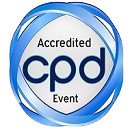
Biography
Biography: M.G.S.A. Wimalasena
Abstract
Food safety is one of the key concerns in the developing and the developed countries. Sri Lanka has a very good food control system in place. It is implemented from grass root level. There is an organized food inspection system and a laboratory service. They are established under the Food Act of Sri Lanka. The Food Act controls all the stages of food chain. The Food Act implemented in Sri Lanka is the Food Act. No 26 of 1980. The Act lays down only the basic principles. It has sections on labeling and advertisements, registration, appointment of authorized officers and their powers, provision to make regulations, etc. Under the Act, Director General of Health Services is the Chief Food Authority and also the Chairman of the Food Advisory Committee (FAC). The FAC is comprised of 19 members. They represent various stake-holders in food safety from Government departments / Ministries as well as trade and consumers. There is also a Food Advisory Technical Sub-committee that deliberates on issues referred to it on a regular basis. The main function of the FAC is to advise the Minister in charge of the subject of health on food safety policy matters. The Food Control Administration Unit is in charge of the general administration of regulatory and training activities of the country. There are six authorized laboratories for chemical analysis and one microbiological laboratory in the country. The consumer affairs authority Act No 9 of 2003 was established with focusing attention on the consumers in the present day context of the new economic order and trade procedures. It safeguards the rights of not only the consumers but also the traders who are subjected to injustice. Both the goods and services are covered within the ambit of the Act. The Sri Lanka Standards Institution (SLSI) was established and empowered with the primary responsibility of promoting standardization and quality management practices in Sri Lanka, and responsible for implementation
of internationally recognized Management Systems Certification Schemes of ISO 22000, Food safety Management System, HACCP Food Safety certification Scheme, Good Manufacturing Practice Scheme, Super Market Certification Scheme, etc.

